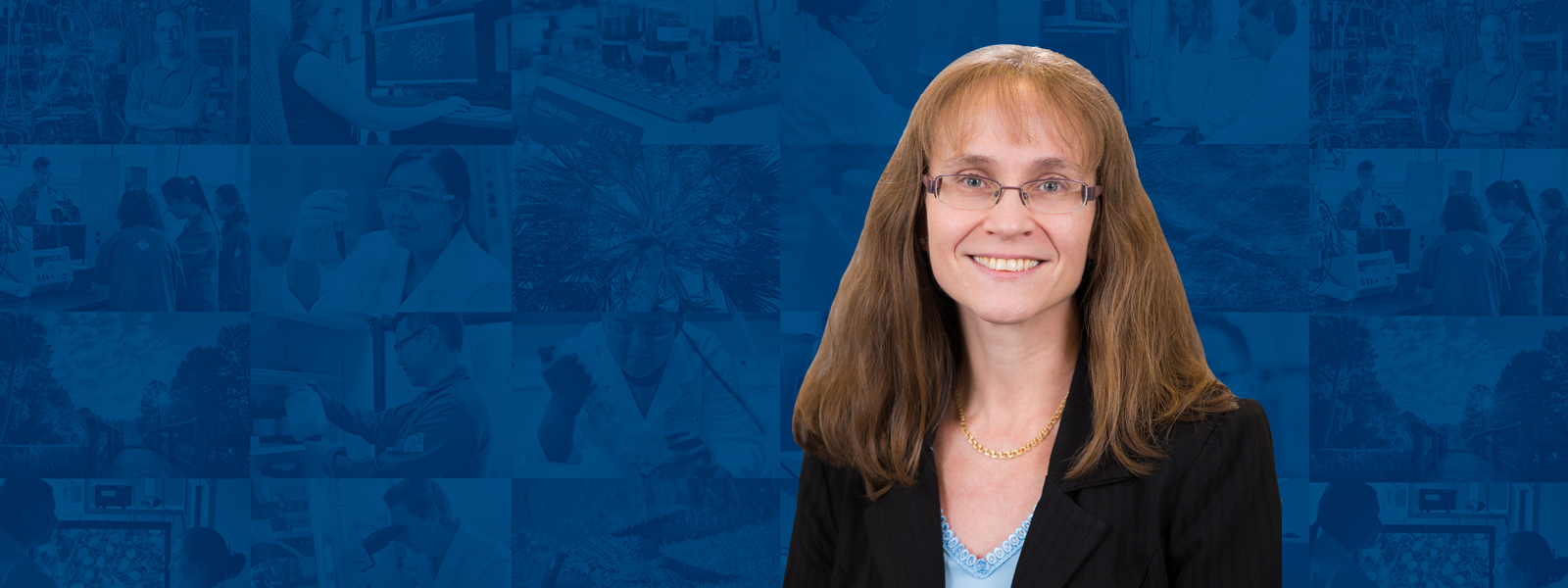Identifying a need for female role models and mentors in Chemical Engineering at UF, Helena Hagelin-Weaver, Ph.D., an associate professor, created an informal mentoring program that has grown significantly over the last 20 years.
“I realized during my postdoctoral years how fortunate I had been to have female role models during my Ph.D., so I wanted to make sure that our female students have access to female faculty mentors or role models,” said Dr. Hagelin-Weaver. “This initiative has since grown into a formal mentoring program with several female faculty mentors.”
When Dr. Hagelin-Weaver started as a Research Assistant Professor in the department, she wanted to make sure that female Ph.D. students had interactions with female faculty. It was also important to her to give students a platform to bring up potential issues that they might not want to talk about with their male advisors.
Initially, meetings were informal social events, where they met for coffee several times a year and talked about topics of interest.
The Women in Chemical Engineering Mentoring Program was formally initiated during the 2004-2005 academic year, during the tenure of Jennifer Curtis, Ph.D., a former department chair and professor. During that time, the female Ph.D. students had a female department chair and role model. Dr. Curtis was very supportive of the mentoring efforts.
The department started to sponsor the meetings, and Dr. Hagelin-Weaver would invite female Ph.D. students to meetings once or twice a semester. She also initiated an annual Christmas gift exchange, and the group would meet and celebrate when one of the students graduated. The main goals of these meetings were getting to know other female students and faculty and provide informal mentoring.
When new female assistant professors were hired, Dr. Hagelin-Weaver began to formalize the program and the meetings. It was during this time that a new name for the program was also introduced: Women’s Advancement and Mentoring (WAM) committee.
They expanded the program to first include female Master’s students and are discussing ways to include female undergraduate students. The topics of the meetings have evolved to include resume writing and how to give impactful presentations. Before the pandemic they also discussed ways to network at AIChE, and hosted a diversity discussion after watching the movie, Picture a Scientist.
In fall 2022, Dr. Hagelin-Weaver passed the leadership role to Janani Sampath, Ph.D., an assistant professor.
“Helena founded the Women in Chemical Engineering group at UF. This laid the foundation for regular meetups and professional development events which fostered a sense of community among female graduate students and faculty. This in turn led to the creation WAM, of which Helena is an active member. Without Helena’s efforts, WAM would not exist in its current form, and we are grateful for the initiative that she took early on in establishing this community,” said Dr. Sampath.
“The Women’s Advancement and Mentoring committee played an influential role in my professional and personal development while I was a Ph.D. student, and the members have continued to serve as friends and mentors as I moved into my next role. I will always be grateful that Helena had the vision and initiative to establish and grow such a supportive community within the department.”
– Mykela Deluca, Ph.D. ’22
Postdoctoral Researcher, Purdue University
“It was very important that when I was a Ph.D. student figuring out what lab I wanted to research with, I found a lab that either had female representation or was actively trying to support female Ph.D. students. That was something that was (and is) very important to Helena as well and was one of the reasons I chose to work with her. As Helena’s first female Ph.D. student, I was excited to be in the lab because she was excited to have me in the lab. Helena always fostered my growth and inclusion in other career and personal development activities on campus. I always felt supported and championed by Helena: she was honest with me about a career in academics and while that isn’t the career trajectory I chose Helena actively disseminated my resume and helped connect me with the job I still currently have.”
– Samantha J. Roberts, Ph.D. ’16
Process Engineer (Dry Etch), Logic Technology Development, Intel Corporation

